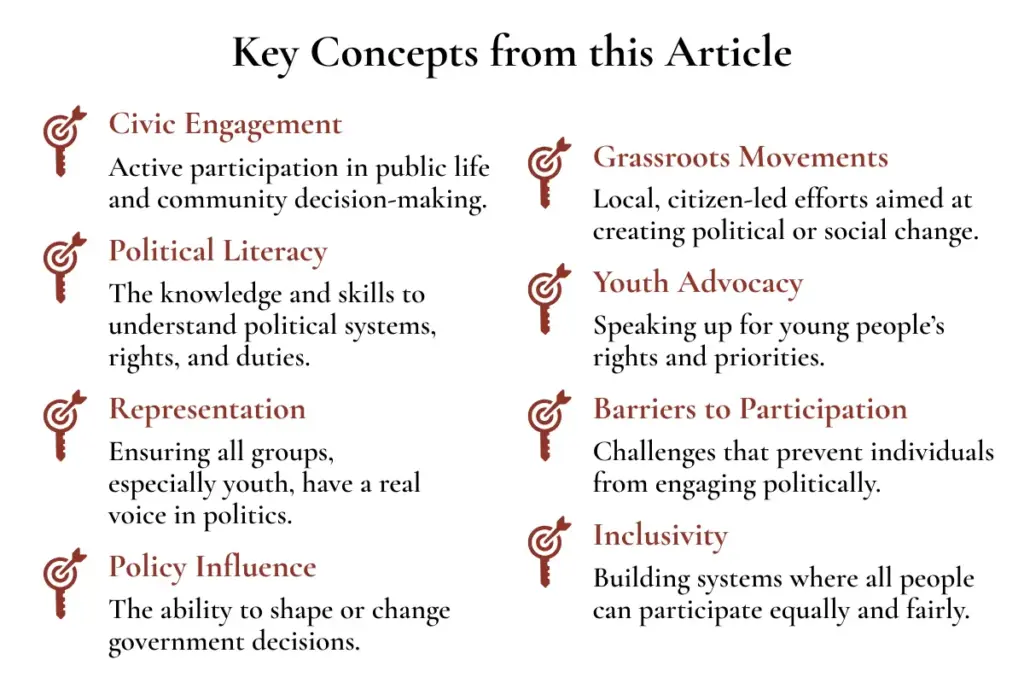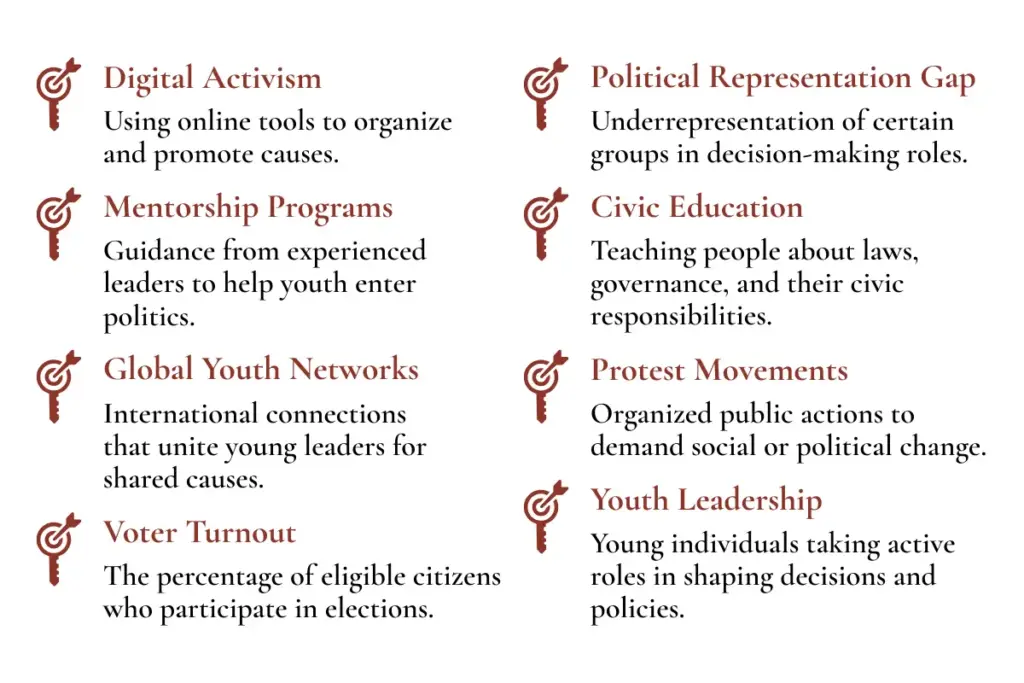Young people bring fresh perspectives, new ideas, and the energy needed to drive societal change. Their involvement in politics ensures that policies reflect the needs and concerns of future generations. Youth participation also strengthens democracy by expanding representation beyond established political groups. When young voices are included in decision-making, governments become more responsive, inclusive, and forward-thinking.
Challenges to Youth Engagement
Despite their potential, young people often face barriers to political participation. These can include limited access to resources, lack of political education, or the perception that politics is unwelcoming to newcomers. Social and economic inequalities can further prevent youth from having a say in decisions that directly affect their lives. Overcoming these challenges requires targeted efforts, such as civic education programs, mentorship opportunities, and inclusive political structures.
How Youth Can Influence Policy
Young people can make a political impact through both formal and informal means. Formal participation includes voting, joining political parties, or running for office. Informal action can involve organizing protests, leading advocacy campaigns, or engaging on social media to raise awareness about key issues. Digital tools, in particular, have given youth the ability to mobilize quickly, connect across borders, and push for global change.
Conclusion
The role of youth in politics is not just about preparing the next generation of leaders—it’s about empowering them to lead now. By overcoming barriers, increasing political literacy, and fostering inclusive spaces, societies can unlock the potential of young people as active, informed, and influential citizens.




